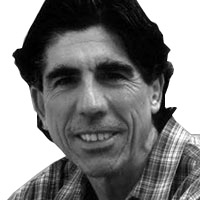It has been over 40 years since the Vietnam War ended, but debate over the war is sure to restart when the 10-part PBS documentary of the war by Ken Burns and Lynn Novick begins tonight.
For those of us who were in our twenties when the Vietnam War was going on, the documentary is sure to raise again personal questions that have never been settled: Was serving in the military and sharing the risks that involves the only honorable action to take? Was protesting the war, particularly through civil disobedience, a morally acceptable alternative?
In a war in which of the 26.8 million men who were eligible for service, only 2.1 million went to Vietnam and 15.4 million were deferred or exempted, there remains plenty of room for self-examination.
Soul searching on the war did not end when our last troops came home. The divisions over the war have continued—symbolized on the National Mall in Washington by the contrast between Maya Lin’s V-shaped, black-granite wall with the names of the Vietnam War’s dead and Frederick Hart’s larger-than-life sculpture of three young soldiers in battle garb.
When I think of the people I know who have dealt most honestly with the war, the men who come to mind for me are seven players from the West Point football team of 1964 whom I got to know when writing about the transition they made from the football field to the Vietnam battlefield. They are men who have shown how it is possible to look backward and forward on a war that was managed badly and deceptively from the start.
The seven players capped their 1964 football season by defeating their arch rival Navy and its All-American quarterback, Roger Staubach, and they went to Vietnam confident of their mission. Their fathers belonged to the World War II generation, and the players believed they were following in their fathers’ footsteps. For the players, there was a timelessness to the observation of Earl “Red” Blaik, West Point’s legendary coach of the ’40s and ’50s, “Football beyond any game invented by man is closest to war.”
In Vietnam the players were junior officers who often found themselves in the thick of combat. They returned home with a range of views on how the war was waged. As one player observed of the differences over Vietnam held by the nation, “I don’t think it will ever be resolved what we could have done, why we did it.”
Some players felt the war could have been won if America had just used its full military might. Others believed the United States underestimated North Vietnam’s troops and overestimated its South Vietnamese allies. What makes the players’ example so compelling today, though, is not their strategic assessment of the war but their postwar response to it.
The disagreements the players had about Vietnam never affected their love for one another or their loyalty to those they served with. They remain bitter about the protestors who jeered them on their return and accused them of being “baby killers,” but they have not spent their time venting about those who didn’t serve. As one player observed of the men who pulled strings to get draft deferments, “As far as I am concerned, that’s the guilt they have to carry. I am not going to dwell on it with them.”
The point on which the players have been united is in not wanting another generation of troops to have to fight a war that neither the government nor the country fully supports. A turning point for a number of the players came in 2003 when, during his testimony before the Senate Armed Services Committee, their West Point classmate, General Eric Shinseki, then Army chief of staff, gave a much higher estimate than the George W. Bush administration of how many troops America would need to prevail in Iraq.
For the players who knew of Shinseki’s testimony and the controversy it aroused, he was a hero. They believed Shinseki, a twice-wounded Vietnam vet, was speaking candidly, unlike President Lyndon Johnson and Secretary of Defense Robert McNamara during Vietnam. They were furious when President George W. Bush and Secretary of Defense Donald Rumsfeld disrespected Shinseki by not going to his retirement ceremony.
The quarterback and captain of the 1964 team and a number of the players made a point of attending that ceremony. They wanted Shinseki, whose realism about the troop strength needed in Iraq would prove correct, to know they had his back just as he had the backs of the men serving under him.
Their presence, along with that of other West Pointers, was important to Shinseki. “The current war brings me full circle to where I began my journey as a soldier—the lessons I learned in Vietnam,” he observed in his retirement speech.
For the players, as for Shinseki, there has been no forgetting the ordeal of the Vietnam War even with the passage of time, but their highest priority has never been refighting their war. Their deepest hope has been that the choices Vietnam forced their generation to make will not be visited upon another generation.





